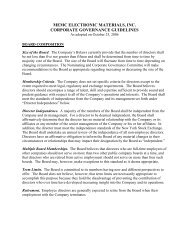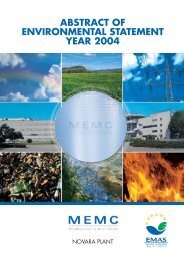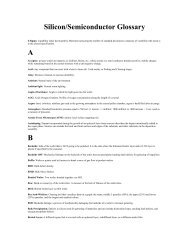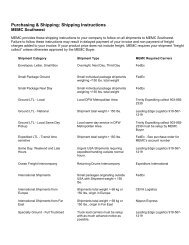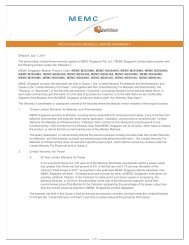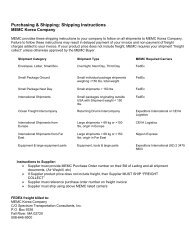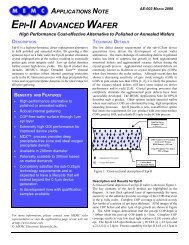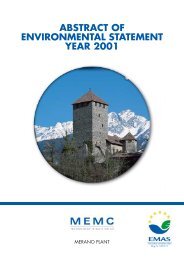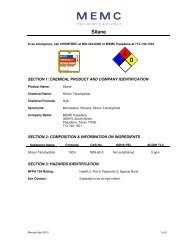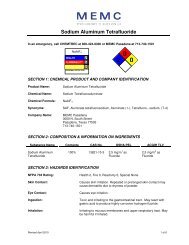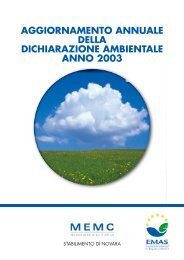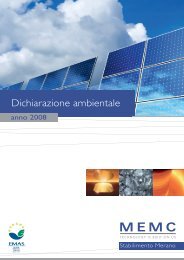BUILDING ON THE PAST, READY FOR THE FUTURE: - MEMC
BUILDING ON THE PAST, READY FOR THE FUTURE: - MEMC
BUILDING ON THE PAST, READY FOR THE FUTURE: - MEMC
You also want an ePaper? Increase the reach of your titles
YUMPU automatically turns print PDFs into web optimized ePapers that Google loves.
8<br />
This is the story about a large corporation that, once<br />
upon a time, started as a small company and grew into<br />
a global force that helps make technology possible.<br />
From its inception, the company that is today <strong>MEMC</strong><br />
Electronic Materials, Inc., was a driving force in the<br />
technology that brought<br />
us the Information Age.<br />
At no other time in<br />
human history has the<br />
way we work, the way<br />
we play, and the way<br />
we communicate with<br />
each other changed as<br />
rapidly as it has in the<br />
period from 1970 to<br />
the present. Though<br />
the experiments and<br />
inventions of Thomas<br />
Edison in the late 1800s are considered the birth of<br />
the electronic age, it was the continuing research that<br />
took place in the first half of the twentieth century<br />
that laid the foundation for the Information Age.<br />
C H A P T E R O N E<br />
The Birth of Technology<br />
DiD yoU knoW?<br />
On February 6, 1959, a patent<br />
application was filed for a “Solid<br />
Circuit made of Germanium.”<br />
Subsequently, Texas Instruments was<br />
issued U.S. patent number 3,138,743<br />
for “Miniaturized electronic circuits.”<br />
In 2000 the importance of the<br />
Integrated Circuit (IC) was recognized<br />
when Jack Kilby was awarded the<br />
Nobel Prize in physics.<br />
When World War II ended in 1945, technology<br />
largely remained in the hands of universities, the<br />
military, and industry. Postwar life in America was<br />
good—relieved of the scarcities of war and full of<br />
promise. But even then, homes were still heated<br />
largely by coal, which<br />
was delivered by truck<br />
and dumped through a<br />
chute to the basement.<br />
Food was stored in an<br />
icebox, literally, in an<br />
insulated cabinet cooled<br />
by a block of ice. Clothes<br />
were laundered using a<br />
wringer washing machine<br />
and then hung on the<br />
line to dry. If you were<br />
lucky enough to have<br />
a telephone, your call<br />
was connected by a switchboard operator and<br />
subject to eavesdropping by all the other homes<br />
that shared your “party line.” Most households<br />
had a radio, their only source for music, news,



